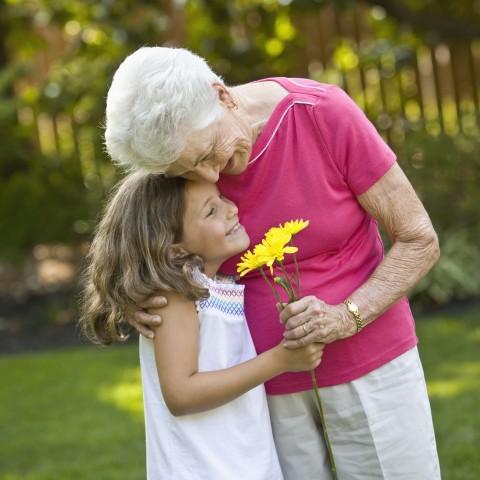No matter what culture you visit, you’ll likely learn that the way other people think of family is completely different from how you do.
When you speak in your native language about your own family, you’re drawing on many years of ingrained cultural knowledge that shapes what you’re likely to share and what you’re likely to keep private. This cultural influence may even affect the way you present that knowledge.
But if you use another language to talk about your own family, like if you speak about your family in Arabic, you may sometimes find that it doesn’t quite line up. Certain phrases you expect to use aren’t there, and the person you’re speaking with may have a very different expectation of what you’re going to communicate.
All that to say: In order to take your Arabic studies to the next level, you’d better work on getting your knowledge about families in Arabic up to par.
You’ve come to the right place. In this article, you’ll read up on the following topics about family in Arabic:
- Members of the family in Arabic
- Describing your family in Arabic
- How to talk about your family in Arabic effectively
- Quotes about family in Arabic
But first, what is the family in Arabic cultures?
Table of Contents
- What a Family is in Arabic Culture
- The Nuclear Family in Arabic
- The Extended Family in Arabic
- What Marriage Does to the Words About Family
- Expressions About the Family
- How ArabicPod101 Can Teach You All You Need to Know About Arabic
1. What a Family is in Arabic Culture
Learning the words you need in a foreign language is one thing. But if you want to use them well, you’ve got to learn a little bit about the culture you’ll be in.
Although the name “Arab countries” covers quite a few very different regions, there are certain family values that tend to hold constant across the lines of culture.
People are loyal to their families in Arabic culture, thus the idea of family above all in Arabic countries. Every year during the Eid al-Fitr holiday, huge extended families unite for a celebration. Beyond just hanging out, though, people are expected to side with their families in disagreements, as well as help out family members in need, at the drop of a hat.
These connections hold strong across generations. Elders are consulted on matters large and small, and children begin imitating their parents at a young age. Children are expected to live with their parents until they start families of their own.
As you can imagine, the classical (and thus the modern standard) language has many unique terms to represent this very different way of looking at the family compared to what we’re used to in the West. Let’s begin with something not too far away.
2. The Nuclear Family in Arabic
The word أسرة (usrah) means your closest family, or what we often term the “immediate family” in English.
Here’s some family vocabulary Arabic people use for immediate family in Arabic-speaking countries:
| English | Arabic | Pronunciation |
|---|---|---|
| Brother | أخ | ʾaḫ |
| Sister | أخت | ʾuḫt |
| Mother | أم | ʾum |
| Father | أب | ʾabb |
| Son | إبن | ʾibn |
| Daughter | إبنة | ʾbnah |
Remember that you’re most often going to be speaking about your family, so here are a couple of phrases for just that.
My father is a doctor.
أبي طبيب
ʾabī ṭabīb
My sister is married.
أختي متزوجة
ʾuḫtī mutazawwiǧah
Like most languages, including English, there are formal and informal ways to say “father” and “mother” in Arabic. In English, this is like “father” compared to “papa.”
Where’s my mom?
أين أمي؟
ʾayna ʾummī?
My dad is really tall!
أبي طويل جدا!
ʾabī ṭawīlun ǧiddan!
The word for “parent” is والد (walid), which can, of course, be used in the singular, though it’s far more common to see it in the dual form: والدان.
My parents live in Cairo.
والداي يعيشان في القاهرة
walidāy yaʿīšān fī al-qāhirah
Arabic normally doesn’t distinguish between older and younger siblings, unlike some Asian languages which have separate words for “younger sister” and “older sister.” So just like in English, you’d add the specific age words to be more clear.
For “older” use الاكبر, and for “younger” use الاصغر.
My older brother is shorter than me.
أخي الأكبر أقصر مني
ʾaḫī al-ʾakbar ʾaqṣaru minnī
My younger sister is smart.
أختي الصغرى ذكية
ʾuḫtī al-ṣuġrā ḏakyyah
3. The Extended Family in Arabic
So that about covers it for the people you grow up around. How about the عائلة (ʿāʾilah), the “extended family?”
The best way to explain it all is in another chart. Although Arabic doesn’t make that older/younger distinction, there is a difference between maternal and paternal aunts/uncles (though not grandparents). On the whole, though, it’s not too many Family in Arabic words to memorize.
| English | Arabic | Pronunciation |
|---|---|---|
| Grandfather | جد | ǧad |
| Grandmother | جدة | ǧadddah |
| Grandson | حفيد | ḥafīd |
| Granddaughter | حفيدة | ḥafīdah |
| Paternal Uncle | عم | ʿamm |
| Paternal Aunt | عمة | ʿammah |
| Maternal Uncle | خال | ḫal |
| Maternal Aunt | خالة | ḫalah |
| Cousin on Father’s Side | إبن عم / إبن عمة | ibn ʿamm / ibn ʿammah |
| Cousin on Mother’s Side | إبن خال / إبن خالة | ibn ḫal / ibn ḫalah |
As you can see, there are a number of patterns that start to become apparent pretty quickly. To go a little bit deeper, we can distinguish between male and female cousins by adding the word إبن (ibn) for men and بنت (bint) for women. Check it out.
My (female) cousin lives with her parents.
إبنة عمي تعيش مع والديها
ʾibnatu ʿammī taʿīšu maʿ waldayhā
I like to work out with my (male) cousin.
أحب ممارسة الرياضة مع إبن عمي
ʾuḥibbu mumārasatu al-riyāḍah maʿ ʾibn ʿammī
4. What Marriage Does to the Words About Family
Have you ever been to an Arab wedding, or at least seen videos? They’re big deals, full of formality and tradition.
It’s no wonder that the Arabic language would not only have many specialized words for the marriage ceremonies, but also that the way people refer to each other before and after marriage might change too.
Leading up to the wedding, we have:
| English | Arabic | Pronunciation |
|---|---|---|
| Boyfriend | شريك | šarīk |
| Girlfriend | شريكة | šarīkah |
| Fiancé | خطيب | ḫṭīb |
| Fianceé | خطيبة | ḫaṭībah |
| Groom | عريس | ʿarīs |
| Bride | عروسة | ʿarusah |
In many more conservative families, the relationship tends to progress immediately from “friend” to “fiancé.” However, in others, there’s space for the Western habit of having a relationship first.
After the wedding festivities end?
Well, there’s no neutral word for “spouse” in Arabic. One must either say زوجة (zawǧah) for “wife” or زوج (zawǧ) for “husband.”
Traditionally, a bride will move in with the husband’s family after marriage, and the parents of both the bride and the groom maintain close contact. The families are wed, not just the individuals; essentially, you’ve become a joint family in Arabic culture. Therefore, there’s a whole set of vocabulary in this sphere. Time for another quick chart.
| Son-in-law | زوج البنت | zawǧ al-bint |
| Daughter-in-law | زوجة الإبن | zawǧatu al-ʾibn |
| Father-in-law | حمى | ḥamā |
| Mother-in-law | حماة | ḥamāh |
| Brother-in-law | أخ الزوج(ة) | ʾaḫ al-zawǧ(ah) |
| Sister-in-law | أخت الزوج(ة) | ʾuḫt al-zawǧ(ah) |
5. Expressions About the Family
And now for something that I think sheds more light on family relations in Arabic than anything else: idioms and sayings related to family life. This is a fun and insightful way of describing family in Arabic.
- الأقربون أولى بالمعروف
Your relatives (in need) are more deserving of your generosity.
(Family before friends.)
The concept of “brotherhood” or الأخوة (al-ʾuḫuwwah) is something that you see over and over in traditional Arabic teachings.
- I and my brother against my cousin, I and my cousin against a stranger.
أنا وأخي على إبن عمي وأنا وإبن عمي على الغريب
ʾnā waʾaḫī ʿalā ʾibn ʿammī waʾanā waʾibnu ʿammī ʿalā al-ġarīb - Without a brother, you’re like a person rushing to battle without a weapon.
إن مَنْ لا أخا له كَساعٍ إلى المعركة بغير سلاح
ʾinna man lā ʾaḫā lahu kasāʿin ʾilā al-maʿrakah biġayri silāḥ - Your brother is who’s honest with you, not who believes you.
أخوك من صَدَقك لا من صدّقك
ʾaḫūka man ṣadaqaka lā man ṣaddaqak
And finally, the love between a parent and child is eternal, a concept found in every language. Here’s what people say about that in Arabic:
- When your son grows up, become his brother.
إن كبر ابنك آخيه
ʾin kabura ibnuka ʾāḫīh
And the Egyptian saying:
- Only your grandchild is dearer to you than your child.
أعز من الولد ولد الولد
ʾaʿaz min el-weld weld el-weld
6. How ArabicPod101 Can Teach You All You Need to Know About Arabic
Really, when it comes to something as important as family in Arabic, you can’t treat it with enough respect.
On the one hand, Arabs are famously welcoming to foreigners and will tend to let even relatively big language slip-ups slide as long as it’s clear that respect was intended.
But on the other hand, as I mentioned, family is such an important part of any culture that if it becomes clear you’re not making any effort to understand its significance, well, woe betide you.
I can’t help you be better at respecting things—but I can give you advice about learning things. And one of the best ways to make these particular vocabulary words stick is to find a nice long Arabic TV series and watch a couple dozen episodes.
There are a number of thirty-episode Ramadan specials filmed in Modern Standard Arabic that have enough family schemes and betrayals to make sure you’ll never forget the words.
When you get to that point, your Arabic family will welcome you with open arms.
But for now, we hope that this article on family in Arabic proved helpful to you. Did you learn anything interesting about the Arab family culture? Let us know in the comments! And while you’re at it, why not practice describing family in Arabic writing by writing us a family paragraph in Arabic? We look forward to hearing what you have to say.
Also visit ArabicPod101.com to learn more about Arab culture and additional vocabulary. You can also take advantage of our MyTeacher program by upgrading to Premium Plus, so that you can learn Arabic with your own personal teacher!

















